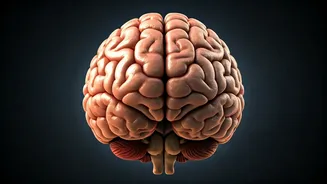Staying Physically Active
Regular physical activity is a cornerstone for maintaining overall health, and it also plays a vital role in protecting cognitive function and lowering
the risk of dementia. Incorporating exercises such as brisk walking, jogging, swimming, or dancing into your routine can improve blood flow to the brain, which is essential for its proper functioning. Aim for at least 150 minutes of moderate-intensity or 75 minutes of vigorous-intensity aerobic exercise per week. Additionally, strength training exercises, like lifting weights or resistance band exercises, should be done at least twice a week. Combining both aerobic and strength training can offer synergistic benefits for both physical and cognitive well-being, providing a robust approach to brain health. Consistency is key, so find activities you enjoy to make it a sustainable part of your lifestyle.
Keeping Your Mind Active
Engaging the mind through activities that challenge cognitive abilities is crucial for brain health. Learning new skills, such as a new language, playing musical instruments, or taking up a new hobby, can stimulate different areas of the brain and help to create new neural connections. Activities like solving puzzles, crosswords, and Sudoku, or playing strategic games such as chess, can help in maintaining and improving cognitive function. Regular mental exercises help keep the brain sharp, improving memory, and processing speed, and can also help create a 'cognitive reserve' which can protect against age-related cognitive decline. It's beneficial to vary the types of mental exercises to stimulate diverse areas of the brain for optimal cognitive fitness.
Eating a Brain-Healthy Diet
Nutrition plays a critical role in supporting brain health, and adopting a diet rich in essential nutrients can reduce the risk of dementia. A Mediterranean-style diet, which emphasizes fruits, vegetables, whole grains, lean protein, and healthy fats like those found in olive oil and avocados, is particularly beneficial. This diet provides antioxidants and anti-inflammatory compounds that protect brain cells from damage. Including foods rich in omega-3 fatty acids, such as salmon, flaxseeds, and walnuts, is essential for brain function and overall cognitive health. Minimizing the intake of processed foods, saturated fats, and added sugars, which can contribute to inflammation and cognitive decline, is also crucial. Prioritizing nutrient-dense foods helps to fuel the brain and reduce the risk of cognitive impairment.
Prioritizing Quality Sleep
Adequate and restful sleep is critical for brain health and overall cognitive function. During sleep, the brain clears out toxins and consolidates memories, processes crucial for maintaining cognitive health. Aim for 7–9 hours of quality sleep per night to allow the brain to function optimally. Establishing a regular sleep schedule, creating a relaxing bedtime routine, and ensuring a comfortable sleep environment can improve sleep quality. Managing stress and avoiding stimulants, such as caffeine and alcohol, especially close to bedtime, can also greatly improve sleep. Poor sleep is linked to an increased risk of cognitive decline, making it imperative to prioritize sleep for brain health.
Staying Socially Engaged
Maintaining a strong social network can have a positive impact on brain health and reduce the risk of dementia. Regular social interaction helps stimulate cognitive function, provides emotional support, and reduces feelings of loneliness and isolation, which are risk factors for cognitive decline. Engaging in social activities, such as joining clubs, volunteering, participating in community events, or simply spending time with friends and family, can help to keep the brain active and socially connected. Social activities provide mental and emotional stimulation, contribute to a sense of purpose and fulfillment, and can improve overall cognitive health. Cultivating meaningful relationships can also protect against cognitive decline and improve overall well-being.
Managing Cardiovascular Health
Cardiovascular health is closely linked to brain health, making it essential to manage conditions like high blood pressure, high cholesterol, and diabetes. These conditions can damage blood vessels, reducing blood flow to the brain and increasing the risk of dementia. Regular monitoring of blood pressure, cholesterol levels, and blood sugar levels is vital, and addressing any abnormalities with lifestyle changes or medication, as recommended by a healthcare provider. Following a heart-healthy diet, engaging in regular physical activity, managing stress, and avoiding smoking can all help to keep the cardiovascular system healthy. Taking care of your heart helps to nourish your brain and lowers the risk of developing cognitive impairments.
Addressing Mental Health
Mental health and cognitive function are interconnected, and addressing issues such as depression and anxiety is important for brain health. Mental health conditions can increase the risk of cognitive decline, making it important to seek help if you’re struggling with mental health issues. Practicing stress-reduction techniques, such as meditation, deep breathing exercises, and yoga, can support mental well-being and protect the brain. Seeking professional support through therapy or counseling, if needed, is a proactive step toward mental wellness. Cultivating positive mental habits, such as gratitude, mindfulness, and optimism, can also improve cognitive function. Taking care of your mental well-being is vital for overall brain health and reducing the risk of cognitive decline.













